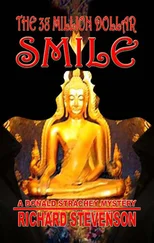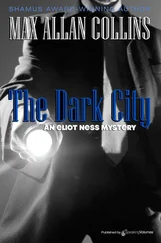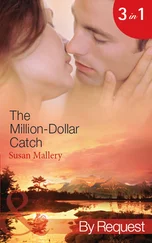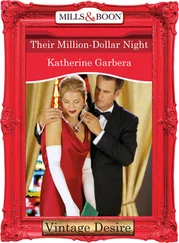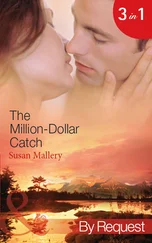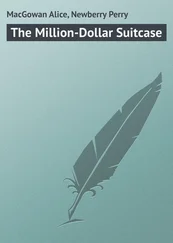Max Collins - The Million-Dollar Wound
Здесь есть возможность читать онлайн «Max Collins - The Million-Dollar Wound» весь текст электронной книги совершенно бесплатно (целиком полную версию без сокращений). В некоторых случаях можно слушать аудио, скачать через торрент в формате fb2 и присутствует краткое содержание. Жанр: Криминальный детектив, на английском языке. Описание произведения, (предисловие) а так же отзывы посетителей доступны на портале библиотеки ЛибКат.
- Название:The Million-Dollar Wound
- Автор:
- Жанр:
- Год:неизвестен
- ISBN:нет данных
- Рейтинг книги:3 / 5. Голосов: 1
-
Избранное:Добавить в избранное
- Отзывы:
-
Ваша оценка:
- 60
- 1
- 2
- 3
- 4
- 5
The Million-Dollar Wound: краткое содержание, описание и аннотация
Предлагаем к чтению аннотацию, описание, краткое содержание или предисловие (зависит от того, что написал сам автор книги «The Million-Dollar Wound»). Если вы не нашли необходимую информацию о книге — напишите в комментариях, мы постараемся отыскать её.
The Million-Dollar Wound — читать онлайн бесплатно полную книгу (весь текст) целиком
Ниже представлен текст книги, разбитый по страницам. Система сохранения места последней прочитанной страницы, позволяет с удобством читать онлайн бесплатно книгу «The Million-Dollar Wound», без необходимости каждый раз заново искать на чём Вы остановились. Поставьте закладку, и сможете в любой момент перейти на страницу, на которой закончили чтение.
Интервал:
Закладка:
McRae followed no pattern; we never knew what indignity or when it would be inflicted-in the midst of most any activity, we could take a break for rifle inspection, close-order drill, or a run in the sand by the bay. Sometimes in the middle of the night. It all seemed so chickenshit.
Barney was getting extra KP, garbage duty, and other dirty details, all because he was a “celebrity.” And, since I was his pal, I caught some of that duty, as well.
My major run-in with McRae was on the rifle range, though, where I made the mistake of referring to my M-1 as my gun. Soon I was running up and down in front of the rows of barracks with my rifle in one hand and my dick in the other, shouting, “This is my rifle,” as I hefted my M-1, “and this is my gun,” as I gestured with my, well, my other hand. “This is for Japs,” M-1, “and this is for fun,” well.
Thirty-six years old, running around with a rifle in one hand and my dick in the other. Telling everybody about it.
Barney’s moment came when McRae noticed him reading in his bunk before lights out; Barney was always poring over these books on religion and philosophy he lugged around with him. And he kept his mother’s picture propped somewhere he could see it.
“The celebrity is religious, I see,” McRae said.
Heads bobbed up, ears perked, all ’round.
“That’s right,” Barney said, bristling a little. All the religion and philosophy books in the world couldn’t completely put his fighter’s fire out.
“You pray a lot, celebrity?”
“Yes.”
“Good. You better give your soul to God. Your heart may belong to mother, but your ass belongs to the United States Marines.”
The corporal strutted off, leaving a trail of laughter behind. Not Barney’s.
Eight weeks later, we were physically fit-even two old fogies like Barney and me-and mentally prepared for what lay ahead. Or as close to it as possible.
Wearing service greens-rifles and cartridge belts left behind-we each received three Marine Corps globe-and-anchor emblems, which we pocketed, and were marched to an amphitheater, to sit with other recruits.
Or I should say Marines. We were Marines, now. The short, friendly major on the stage smiled at us and told us so and we reached in our pockets and pinned an emblem on either lapel of our green wool coats and one on the left side of our caps. Then the major told us the one about the farmer’s daughter and the three traveling salesmen, and we all laughed, and he said, “Good luck, men,” and that was the first we’d been called men since we got here.
I passed McRae, later, and he nodded. I stopped and said, “Could I ask you a question?”
He nodded again.
“Why’d you get us up in the middle of the fucking night to go run in the fucking sand?”
Something nearly a smile touched his tight lips. “Combat allows sleep to no man, Private Heller.”
I thought about that.
I thought about it on that Higgins boat, gliding toward a tropical “paradise” called Guadalcanal.
I sensed, even then, that McRae was wrong. Combat allowed sleep to just about anybody. Waking was something else again.

It was a peaceful landing, a beachhead having been long since established by the 1st Marines-many of whom were there to greet us as we waded ashore, hollow-eyed scarecrows with mud on their faces, oddly amused by our identifying shouts: “B Company here!” “A Company here!” The first 1st GI I encountered-just a kid, really, but older in his way than me-immediately asked me for a smoke, despite the gear I was shouldering. I told him I didn’t smoke. He laughed in a curiously empty way and said, you will, mac, you will.
The palms lining the beach greeted us as well, bending to us as if in deference, when really they were just swaybacked seaward from the tropical winds, their fronds shredded from shelling; these evenly spaced, precisely aligned palms weren’t, as you might assume, the handiwork of God on one of His more particularly inspired days-they’d been planted by Lever Brothers, on whose once (and, if the war went right, future) plantation grounds we were entering. This made our first approach, to Henderson Field, an easy one, the soap company having kept the ground in the groves cleared for harvesting purposes.
The crushed-coral airfield was the hub of activity, with two large air stations, machine shops, and electric-light plants, among other buildings inherited from the Japanese, fewer now than before the Nip bombing raids, of course. Repair sheds, hangars, and retaining walls had been built by American hands. And occasionally rebuilt.
The field, we were told, was shelled every night; its two airstrips were in understandably lousy condition, and under constant maintenance. Much of what had been crushed coral was filled in with dirt and packed down, and on hot dry days the runway swirled with dust, and on rainy ones sloshed with mud. No such problem on a humid sunny day like this one. The field was abuzz with warplanes, including F4F Wildcats, and it had been a long time since a Zero, Betty, or Zeke had dared try anything here in the daylight.
Night, however, was a different story; “Maytag Charlie,” as one nightly Japanese visitor had been nicknamed due to his noisy, washing machine of an engine, dropped his 250-pound turds in an ongoing effort to keep the Marines on the Island awake, and to give them something to do the next morning.
Some of the battle-weary scarecrows of the 1st were filling in craters left by last night’s raid, as we trooped in around noon, the transports at the beach having been unloaded of machinery, equipment, supplies. The living corpses halfheartedly jeered at us.
“We’re safe now,” a Southerner drawled, leaning on a shovel. “Here come the Howlin’ Marines.” Our division commander was General Holland “Howling Mad” Smith.
“Fuckin’ A,” a buddy of his said, shoveling. “Just in time for the Japs.”
“I hear they’re servin’ tea today,” said another.
I glanced at Barney; he smiled and shrugged. But I’m sure he was as unnerved as I was. Not by these lame, fairly good-natured jabs; but by the punch-drunk palookas throwing ’em. Would we look like they did, after a few months on this island?
We went through a chow line and received Atabrine tablets, a supposed malaria preventive, a corpsman flicking a tablet in our mouths and then peering down in to make sure we swallowed it. Later I learned this was because many had mutinied against the pills, suspecting them to be saltpeter. Whatever they were, they tasted bitter, but then so did our lunch, which was a bowl of captured Jap rice, to supplant our K rations. A few months on Spam and rice, and we no doubt would look like the skinny, grizzled 1st Marines. The deadness in their eyes, however, wasn’t from something they ate.
Some of the 1st, preparing to be relieved, were bivouacked near Henderson, pup tents under coconut trees, nestled among the jungle growth-liana vines, twisting creepers, and smaller trees, many of them just overgrown weeds with bark, slanting skyward for no good reason, hogging space, making life tough for nearby plants, which assumed defensive postures, leaves fanning out into knifelike blades. In front of the tents were often bamboo makeshifts, racks to put things on and/or under, a pole to rest a helmet on. This was home to the 1st, though I doubted, having left, any of ’em would feel homesick.
“Ever seen combat?” one asked Barney and me; he was sitting out in front of his tent on a makeshift bamboo stool. He had light blue eyes, somehow very out of place in the tanned, mud-stained face. The eyes seemed more alive than some, albeit somewhat feverish. The most alive thing about him was the glowing tip of his Chesterfield.
Читать дальшеИнтервал:
Закладка:
Похожие книги на «The Million-Dollar Wound»
Представляем Вашему вниманию похожие книги на «The Million-Dollar Wound» списком для выбора. Мы отобрали схожую по названию и смыслу литературу в надежде предоставить читателям больше вариантов отыскать новые, интересные, ещё непрочитанные произведения.
Обсуждение, отзывы о книге «The Million-Dollar Wound» и просто собственные мнения читателей. Оставьте ваши комментарии, напишите, что Вы думаете о произведении, его смысле или главных героях. Укажите что конкретно понравилось, а что нет, и почему Вы так считаете.




